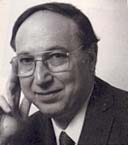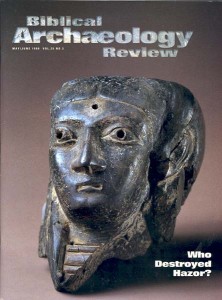First Person: The Meaning of Unhistory
Not everyone shows up in the written record

“The reader should be aware that we have no direct evidence of the existence of characters best known to readers of the Bible, including—but not limited to—Abraham, Sarah, Isaac, Jacob, Esau, Moses, Joshua, Deborah, Gideon, David, Goliath, and Solomon.” So writes Rabbi S. David Sperling, professor of Bible and chair of the faculty at Hebrew Union College—Jewish Institute of Religion in New York, in his recent book The Original Torah.1 Sperling contends that the Pentateuch is, to use his term, “unhistorical.” By this he means that the text can tell us nothing about the period of which it speaks, only about the time hundreds of years later when the text was composed—and the stories made up. The stories in the Torah, he contends, are “politically charged texts [that] provide historical evidence [only] for the period in which they were composed.” Therefore, he concludes, “I am compelled to read the Torah allegorically because it cannot be read historically.”
Already a library member? Log in here.
Institution user? Log in with your IP address.

